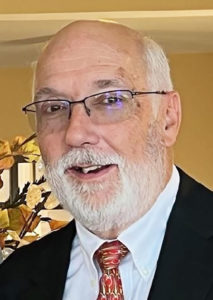Focal Passage: Genesis 9:1-15
 Rebranding is a common theme in the business world. Once a product has hit the market and an initial run has met with success, a company will pull the product off the market, tweak it, repackage it, do a new sales campaign, and then re-release the rebranded product to be sold again, often at a higher price. Rebranding takes a worn-out or broken product, reshapes it, and then sends it back to be sold again.
Rebranding is a common theme in the business world. Once a product has hit the market and an initial run has met with success, a company will pull the product off the market, tweak it, repackage it, do a new sales campaign, and then re-release the rebranded product to be sold again, often at a higher price. Rebranding takes a worn-out or broken product, reshapes it, and then sends it back to be sold again.
The flood story allowed a “rebranding” of sorts to take the broken (Genesis 6:5-7) and restore it. Following the flood, Scripture moved from the Covenant between God and Adam to the Covenant between God and Noah.
The Noah covenant had three components. First, the blessings; second, the responsibility that humanity assumed; and third, the great promise God made when placing the “bow” in the sky. It is essential to understand that God made these Covenants, and God is the One at work, not humanity dictating the plans.
The blessing of God was that humanity will continue to exist. God “remembered” Noah (Genesis 8:1) when all humanity was sinful and broken (Genesis 6:5-7). God brought judgment and could have walked away. Yet, God chose to offer His people a new opportunity.
There was no evidence in the Noah Covenant that sin had been eradicated. God still chose to allow humanity to continue knowing that humanity could be again in the same place pre-flood — “sinful and broken.” The love of God for His people does not wait for us to get to the Gospels or to begin at the foot of the cross.
His love of “sinful and broken” humanity begins at the very beginning, and the theme of judgment and grace is found throughout the Scripture, showing that God continues to seek His people even when they are “sinful and broken.” Once that decision is made, He immediately commands Noah as He did Adam: “Be fruitful and multiply and fill the earth,” not once but twice (Genesis 9:1, 7).
Humanity now assumed more responsibilities (9:2-4). Life must be honored, even in the animal world. If an animal or human took a life, justice demands that a life must be given. Animals now feared humanity, and humanity was to have dominion over them. Animals, like plants, now served as a source of food, though no blood (v. 4).
God provided two great promises to Noah and to the generations that followed him. First, this new covenant was for animals and humanity (vv. 9-10). Second, life will never again be destroyed by water (v. 11). God concluded His time with Noah with a sign for all living things both in the present and to come. A bow in the sky would be a reminder that never again would the world be destroyed by water (vv. 12-17).
A rainbow is seen through the prism of a water droplet away from the sun that is often a semi-circle, sometimes two, and sometimes, when seen above, a full circle. God took a wonderful ordinary event, a rainbow, to tell a grand message that He is still present and operating in our world. B&R

